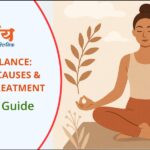Constipation is a common digestive condition affecting millions of people worldwide. It is characterized by difficulty in passing stools, infrequent bowel movements, or a sense of incomplete evacuation. Understanding the causes, symptoms, and treatments for constipation is essential for maintaining optimal digestive health.
What is Constipation?
Constipation occurs when bowel movements become infrequent or hard to pass. While normal bowel movement frequency varies among individuals, most people typically pass stools between three times a day and three times a week. When bowel movements fall below this range, or stools become excessively hard and dry, it is considered constipation.
Common Causes of Constipation
1. Dietary Factors
- Low Fiber Intake: Fiber plays a crucial role in softening stool and promoting regular bowel movements. Diets low in fruits, vegetables, and whole grains often lead to constipation.
- Dehydration: Inadequate water consumption can make stools hard and difficult to pass.
- Excessive Dairy Consumption: Overeating dairy products like cheese and milk can slow digestion.
2. Lifestyle Factors
- Lack of Physical Activity: A sedentary lifestyle can contribute to sluggish bowel movements.
- Ignoring the Urge to Go: Suppressing the natural urge to have a bowel movement can lead to chronic constipation over time.
3. Medical Conditions
- Irritable Bowel Syndrome (IBS): This condition often alternates between diarrhea and constipation.
- Hypothyroidism: Underactive thyroid glands can slow metabolism, including digestion.
- Neurological Disorders: Diseases like Parkinson’s or multiple sclerosis can affect nerve function in the digestive system.
4. Medications
Certain medications can cause constipation as a side effect, such as:
- Pain relievers (opioids)
- Antidepressants
- Antacids containing calcium or aluminum
- Iron supplements
Symptoms of Constipation
The most common symptoms include:
- Fewer than Three Bowel Movements per Week: A significant indicator of constipation.
- Straining During Defecation: Difficulty or discomfort while passing stools.
- Hard or Lumpy Stools: A hallmark of constipation.
- Feeling of Incomplete Evacuation: A sensation that the rectum is not fully emptied after a bowel movement.
- Abdominal Pain and Bloating: Caused by trapped gas or slow-moving stools.
If constipation persists for weeks or is accompanied by severe symptoms like blood in the stool, weight loss, or persistent abdominal pain, it may signal an underlying health issue that requires medical attention.
How to Diagnose Constipation
Healthcare professionals typically diagnose constipation based on a patient’s medical history and symptoms. Diagnostic tools may include:
- Physical Examination: Evaluating abdominal tenderness and stool patterns.
- Imaging Tests: X-rays or colonoscopies to identify blockages or abnormalities.
- Lab Tests: Blood tests to check for hormonal imbalances or other systemic conditions.
Effective Treatments for Constipation
1. Dietary Modifications
- Increase Fiber Intake: Incorporate more fruits, vegetables, legumes, and whole grains into your diet. Adults should aim for 25-30 grams of fiber daily.
- Stay Hydrated: Drink at least 8-10 glasses of water daily to soften stools.
- Limit Processed Foods: Avoid junk food, refined carbohydrates, and excessive dairy.
2. Lifestyle Changes
- Regular Exercise: Activities like walking, jogging, or yoga can stimulate bowel movements.
- Establish a Routine: Try to use the restroom at the same time every day, ideally after meals.
- Avoid Holding Back: Respond to the natural urge to have a bowel movement promptly.
3. Over-the-Counter Remedies
- Fiber Supplements: Products like psyllium husk can help bulk up stools.
- Laxatives: Short-term use of osmotic or stimulant laxatives can relieve constipation. However, long-term use should be avoided without a doctor’s supervision.
- Stool Softeners: Medications like docusate sodium can help ease hard stools.
4. Medical Interventions
- Prescription Medications: Drugs like lubiprostone or linaclotide may be recommended for chronic constipation.
- Biofeedback Therapy: Used for people with pelvic floor dysfunction contributing to constipation.
- Surgical Options: In rare cases, surgery may be necessary for severe blockages or structural issues.
Home Remedies for Constipation Relief
- Warm Lemon Water: Drinking a glass of warm water with lemon in the morning can stimulate digestion.
- Prunes or Dried Fruits: These are natural laxatives due to their high fiber and sorbitol content.
- Castor Oil: A natural stimulant that can aid bowel movements but should be used sparingly.
- Aloe Vera Juice: Known for its soothing effects on the digestive tract.
Preventing Constipation
- Adopt a Fiber-Rich Diet: Consistently eat a balanced diet with high fiber content.
- Stay Active: Engage in regular physical activity to promote healthy digestion.
- Drink Adequate Fluids: Aim to consume enough water to keep your stools soft and your system hydrated.
- Reduce Stress: Stress management techniques like meditation and breathing exercises can indirectly improve digestion.
When to See a Doctor
While occasional constipation is normal, consult a healthcare provider if:
- Constipation lasts longer than three weeks.
- There is severe pain or bleeding during bowel movements.
- Symptoms interfere with daily life or appetite.
Aatreya Ayurved & Panchakarma Clinic offers holistic solutions for digestive health, including effective remedies for constipation through natural Ayurvedic treatments and therapies. At Aatreya Ayurved Clinic, we emphasize balancing the body’s doshas with personalized dietary guidance, herbal medicines, and rejuvenating Panchakarma therapies. Incorporating fiber-rich diets, regular hydration, and stress-relieving practices, the clinic promotes long-term relief from constipation. With a focus on root-cause treatment, Aatreya Ayurved & Panchakarma Clinic is your trusted partner for a healthier and balanced lifestyle.





